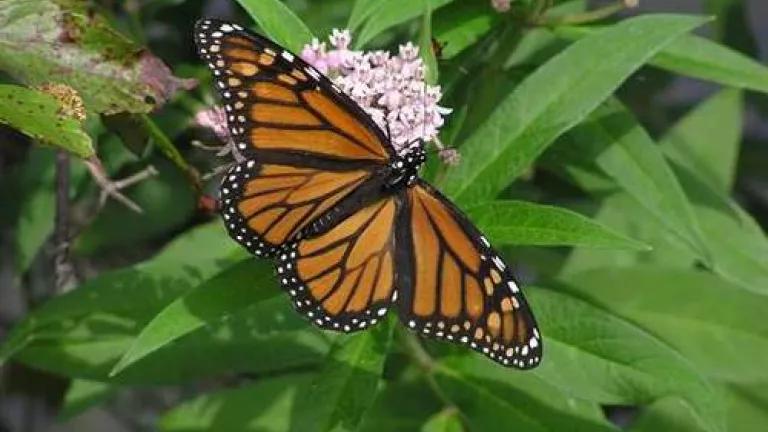
Recently there have been a number of articles in the press about how people are planting the wrong kind of milkweed and that it's actually harming monarch butterflies. Inflammatory headlines have warned about how well intentioned people may actually be "destroying" monarchs and how "the plan to save monarchs" by planting milkweed has "backfired." Well, I'm here to tell you that there is no need to freak out. And Please, KEEP PLANTING MILKWEED! Here's why.
A recent study showed that one particular variety of milkweed, an exotic plant called tropical milkweed, is posing some problems to monarchs in certain areas--particularly in the southern US where conditions allow tropical milkweed to survive year round. (The 100+ other native varieties of milkweed typically die back in the winter). In coastal areas of the southern U.S., tropical milkweed that grows year-round can allow some monarchs to breed all year and skip their migration to Mexico where they overwinter. Year round use of milkweed also increases disease transmission among the butterflies. For these reasons, the researchers have warned that tropical milkweed in the southern US may be causing harm to some monarchs--although they are not sure to what extent this might be affecting the overall monarch population.
Here's what you need to know about the broader implications of this study. The problem posed by tropical milkweed is restricted to a limited part of the monarch's range--namely portions of the southern US. Furthermore, it can be managed by having gardeners cut back the milkweed in the fall when monarchs are migrating back to Mexico. Even better, it could be replaced by other species of milkweed that are native to those areas. In short, this is a limited and manageable problem--not a complete catastrophe as some of the news articles have suggested.
Monarchs depend on milkweed to reproduce--it's the only food source for their caterpillars. The loss of native milkweed across the US largely due to the adoption of herbicide resistant crops is one of the primary drivers of the decline of monarchs. So please, everyone, carry on. Plant your milkweed. Go to your local garden store and ask for the species of milkweed that are native to your area. If you don't garden, support our Green Gift of milkweed which will pay for NATIVE milkweed to be planted by schools and nonprofits around the country in partnership with MonarchWatch. Planting milkweed is still the best thing we can do to help monarch butterflies.

